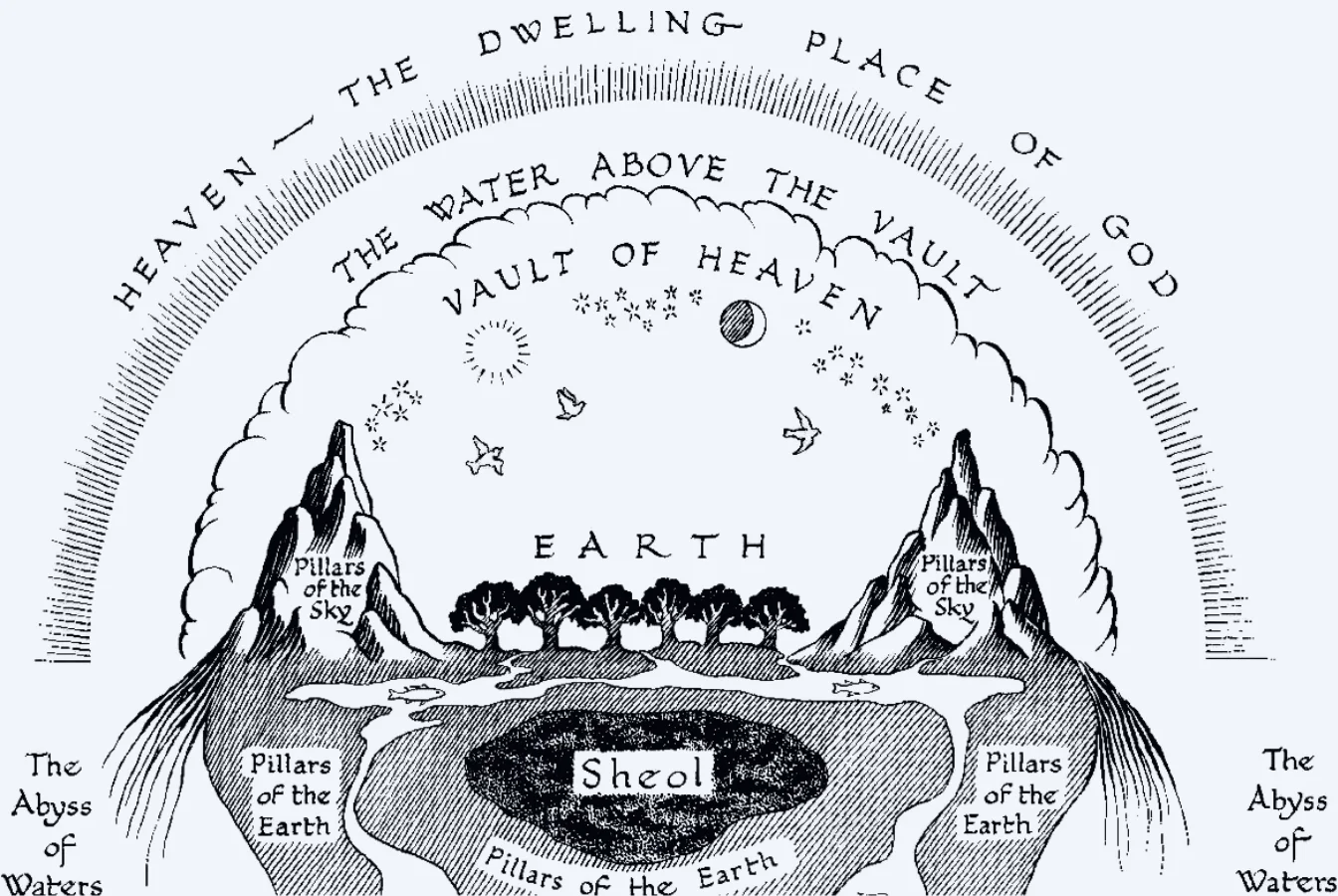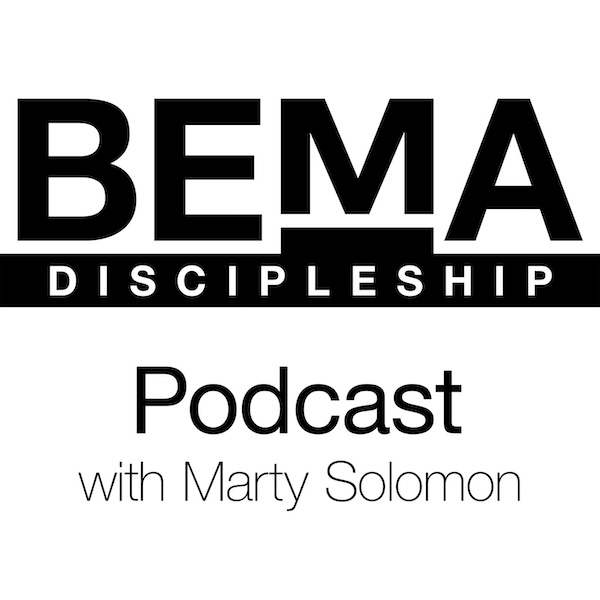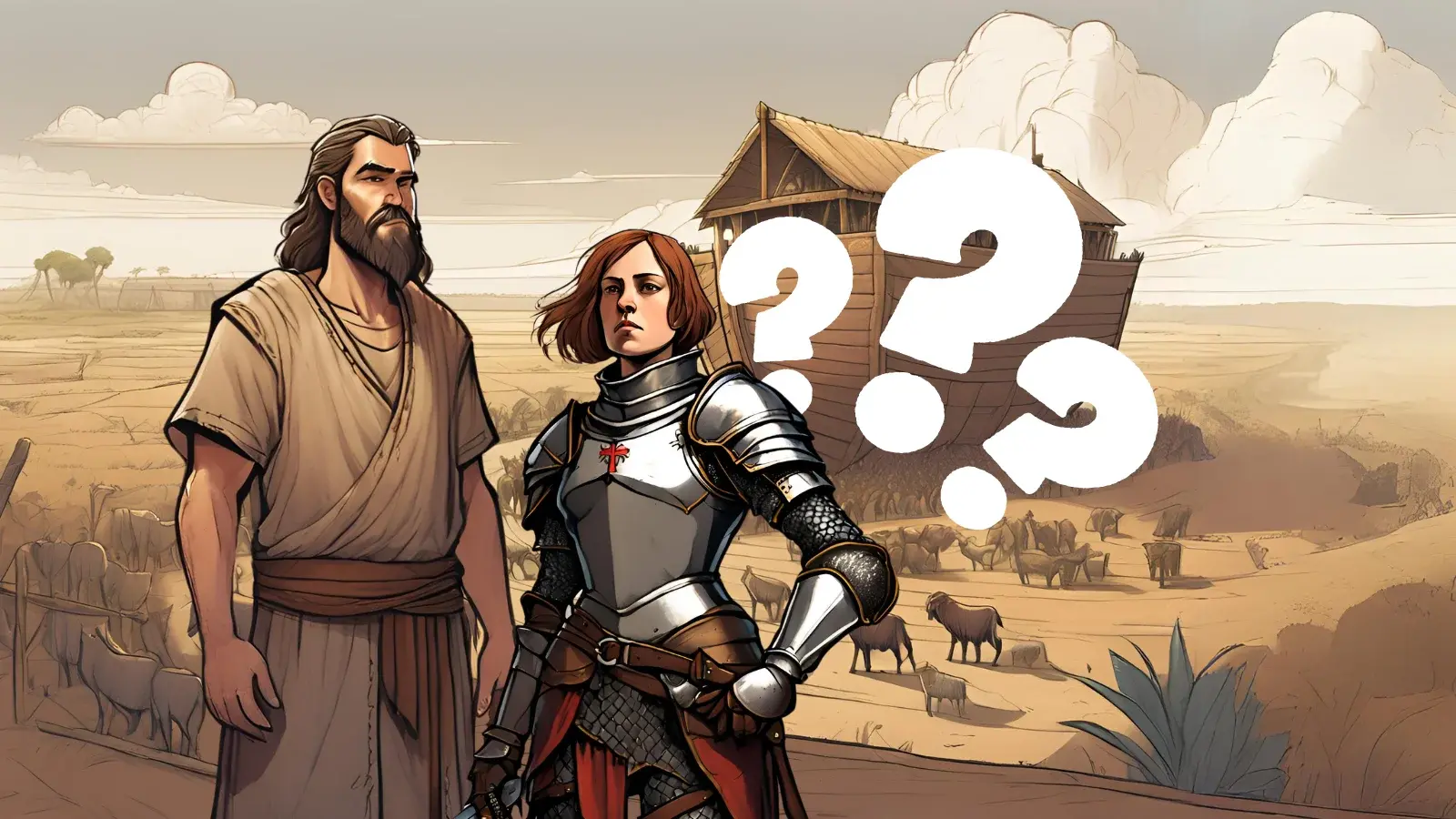Noah and Joan of Ark Married?
The Bible is the main way God chooses to reveal His character and heart to humanity. It isn’t just a bestseller, an assurance that God’s word will...

The Bible is the foundation of our faith and the way God has chosen to show us what He is like. But why is it so confusing and weird sometimes? Well, it was not written in our time and culture but by Hebrews for Hebrews more than 2000 years ago. It's more than just writing styles that differ but also values and worldviews, which makes it harder for us to grasp why people behave in a certain way. Understanding the Hebrew Worldview can open up the scriptures in new ways and help us see things we have never seen before.
The way we view the world and what we value is fundamentally different from Hebrews 2000 years ago.
Western worldview focuses on the individual, Hebrew worldview focuses on the community.
A Biblical example of this is the story of David and Goliath. Many people in the Western context identify with David whereas the Israelites would have identified with Israel. This changes the story from being about how we can overcome anything when we trust in God to God being the one who fights our battles and brings about a savior.
Western worldview uses definitions, prose, and lists to express truth. The Hebrew worldview uses poetry, imagery, and symbolism to express truth.
People in the West would describe God as loving, kind, and omniscient, whereas an Israelite would describe God as a stronghold or a mother hen.
Western worldview values form and asks: What does it look like? How? Hebrew worldview values function and asks: What does it do? Why?
Reading Genesis people with a Western worldview often ask: what did it look like when God created humans? How did he create everything from nothing?
People with a Hebrew worldview ask: Why did God create humanity? What does God do?
When reading the Bible, the Western worldview asks: What does it teach me about myself? When reading the Bible, the Hebrew worldview asks: What does it teach me about God?
A person with a Western mindset would look for people they can see as role models to learn how to live a better life. People with a Hebrew worldview would look for how God relates to humans and what they can learn about him.
Western worldview wants to understand first before believing and tries to prove the existence of God. Hebrew worldview believes first and tries to understand based on this belief and assumes the existence of God.
An example of a Western worldview of this are the Greek philosophers who have formed much of our Western worldview. They tried to understand the world and everything in it, taking it apart until they found a philosophical approach that made sense to them which they then believed.
We find an example of the Hebrew worldview in the Bible. Job’s friends believe so firmly in their view of God that they are not trying to understand or question it, leaving Job alone in his desire for justice.
These are only a few of the many differences. So when you read your Bible remember that you are reading a book that was originally written for a different culture and worldview and therefore answers their questions. Practice asking why? and what does it teach me about God?
Learning more about the Hebrew worldview is an important part of the 9-month School of Biblical Studies at YWAM Nuremberg.
Check out the introductory episode from BEMA discipleship podcast.

Image Source:
Roberts, J.R. (2013). Biblical Cosmology: The Implications for Bible Translation. Journal of Translation. Retrieved from https://www.semanticscholar.org/paper/Biblical-Cosmology%3A-The-Implications-for-Bible-Roberts/63e1b44d3474477155cf534b3ee4c4f331f3e5f6

The Bible is the main way God chooses to reveal His character and heart to humanity. It isn’t just a bestseller, an assurance that God’s word will...

In my last post, I introduced the Inductive Bible Study method, a great way to read the Bible without jumping to conclusions or applying our modern...

The Bible is not just a collection of historical documents and a bestseller. It is the most significant way for Christian believers to learn about...